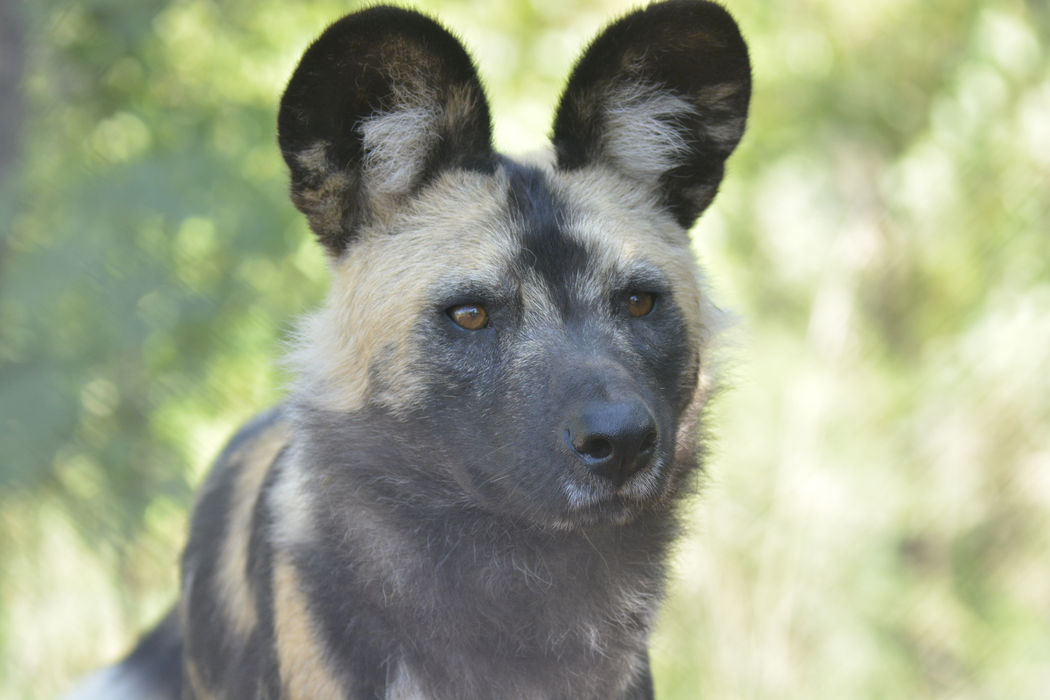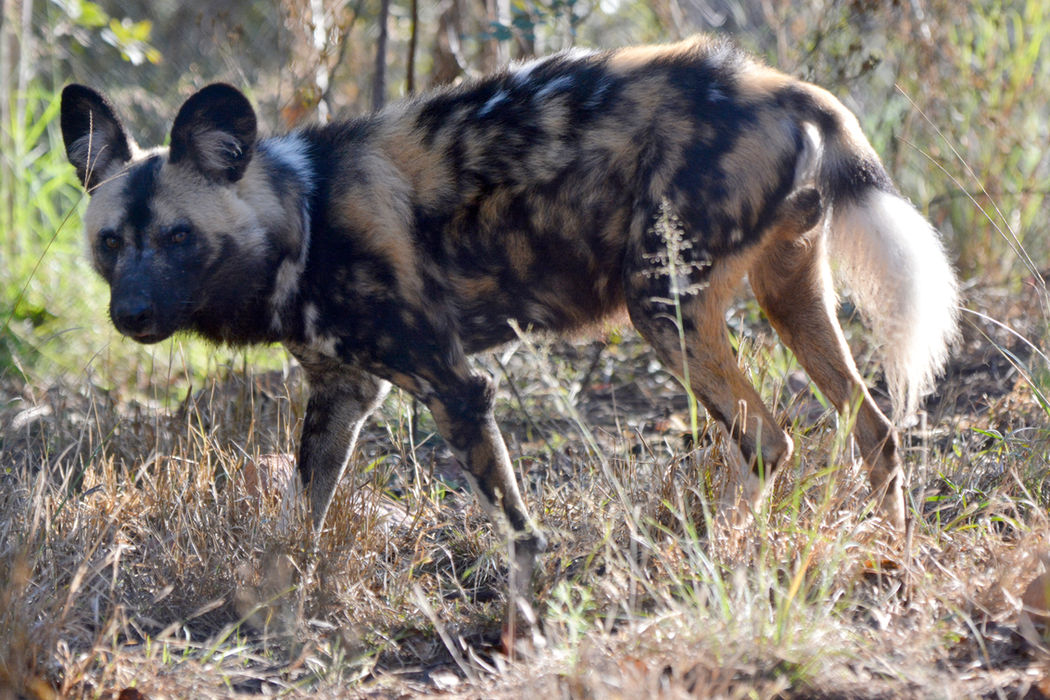Wild Dogs
Gender: Male & female | Birth Year: 2019 | Conservation Status: Endangered
Our Story
Pavarotti and Amira, two captive-bred wild dogs at our park, were named after two famous opera singers for their unique vocalisations. They emit a mix of squeaks, chirps, twittering, and bell-like contact calls when they get excited about food or visitors. These wild dogs come from captive breeding backgrounds in our area, but unfortunately, some people keep them as pets, not realising the consequences.
Wild dogs may look similar to domesticated dogs, but they are not suitable for living with humans. They are not domesticated animals and have not undergone selective breeding. Their behaviour is unpredictable, and they can display fear, aggression, and territorial behaviour, even if raised from a young age.
Furthermore, wild dogs have specific needs and requirements that are difficult to meet in a domestic environment. They also have a strong smell that you cannot get rid of by bathing them, which is usually the cause why people give them away when trying to keep them as pets. Wild dogs need large spaces to roam, plenty of exercise, and specialised diets. Failing to provide these needs can lead to stress, anxiety, and health problems.
In addition, wild dogs pose a threat to humans and other animals. They are powerful predators capable of causing serious injury or death. They also carry diseases that can be transmitted to humans and other pets.
It is essential to consider the ethical implications of keeping wild dogs as pets. Many wild dog populations are threatened or endangered and removing them from their natural habitat can have severe consequences for their survival. Let's ensure that wild dogs remain in their natural habitat, where they belong.







